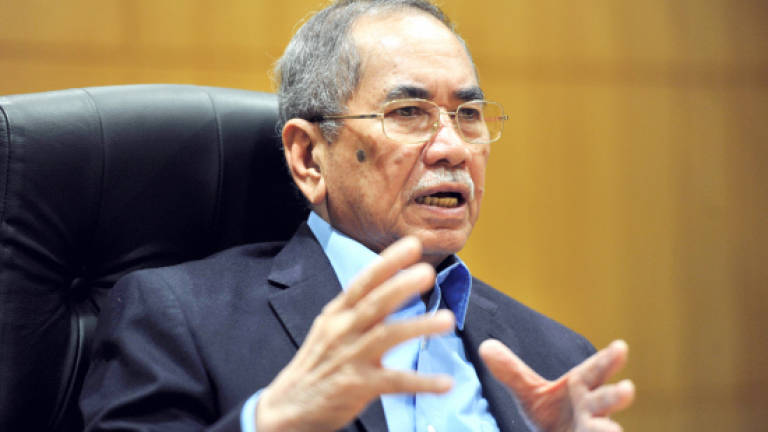Study on rainfall pattern to be completed by end of 2018

KUALA LUMPUR: The outcome of a comprehensive study on the country's rainfall and weather pattern is expected to be completed by the end of next year.
Natural Resources and Environment Minister Datuk Seri Wan Junaidi Tuanku Jaafar said the study was important to assist the government in addressing various environmental issues due to the climate change and significant change in rainfall distribution pattern especially pertaining to the country's flood situation.
"Studies carried out by several public universities recorded Malaysia receiving a total of 907 million cubic metres (m3) of annual rainfall in 2016. The amount is not much different this year, with the only difference being the locations of the rain and how long it will last."
"For example, from 2013 to 2015 there has never been any heavy rain in the upper parts of the Sarawak River for a long period of time, but it is now happening and this has been causing floods in the vicinity,' he said. Wan Junaidi was met after appearing as a panelist in the Ruang Bicara programme on "Climate Change: Impact and Changes of Rainfall Pattern" at Bernama News Channel studio, here last night.
He said changes in rainfall pattern in the country was the result of climate change, on top of logging activities, development, increased in urban temperature and poorly maintained rivers, that eventually led to floods.
"The same thing happens in the peninsula especially in the federal capital when areas that used to receive very little rain are now being hit by flash floods due to the widespread development, which is compounded by the lack of coordination of drainage systems during construction work," he said.
Meanwhile, Wan Junaidi said the aspect of river conservation was one of the main concerns of his ministry, to ensure that it would not to be destroyed due to the rapid development.
He said the existing industrial waste management system in which all the waste were channeled directly into the drain must be changed so that the river would no longer be contaminated with foreign materials, especially chemicals.
"I think we can emulate the system implemented in Europe, where all waste from factories are channeled to a treatment centre first before it is released into the river, which will also improve the sewage management system for cleaner water," he said.
He added that the ministry was currently at the discussion stage of collecting feedback for a new bill that would require each factory owner to treat their industrial waste first before releasing it into the river. — Bernama